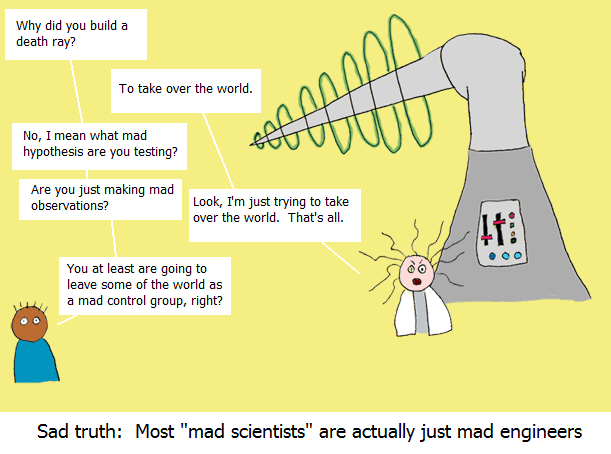These days many cherish “hypothesis-driven” research and trash everything that is observational, exploratory and non-translational. And yet the hypothesis in many research is “post-research” hypothesis. The “hypothesis” itself is also often generated for the sake of having an hypothesis; the essence of the research can still be exploratory.
So when funding is getting scarce and the pressure of coming up with beautiful hypothesis is mounting, one must ask what the value of hypothesis-driven research is. Is it the only way to get important findings? Is it delivering more than other “inferior” approaches?
As I am thinking about these questions and situation all the time, I am leading a journal club in the lab on 8/1 and trying to discuss the philosophical aspects of this with my lab members. And I want to write this down and have a record before we do so. We will read a few articles:
- Pisani E. Has the internet changed science? Prospect 2010; 177:54 [pdf]
- Kell DB, Oliver SG. Here is the evidence, now what is the hypothesis? The complementary roles of inductive and hypothesis-driven science in the post-genomic era. Bioessays. 2004 Jan;26(1):99-105. PubMed PMID: 14696046.
- Ioannidis JP. Why most published research findings are false. PLoS Med. 2005 Aug;2(8):e124. Epub 2005 Aug 30. PubMed PMID: 16060722; PubMed Central PMCID: PMC1182327.
and discuss a few questions, in addition to the ones I have above:
- Are data mining or descriptive research useless?
- What are the downsides of doing “hypothesis-driven research”?
- Are we/funding agencies/authorities doing the society a favor by insisting scientists to have a hypothesis/justification attached to a research idea? how about research that has translational value (i.e. curing disease)? or technical value (e.g. developing a cheaper and faster way to sequence human genome?)
- Is/Can there a balance between different scientific research approaches?
